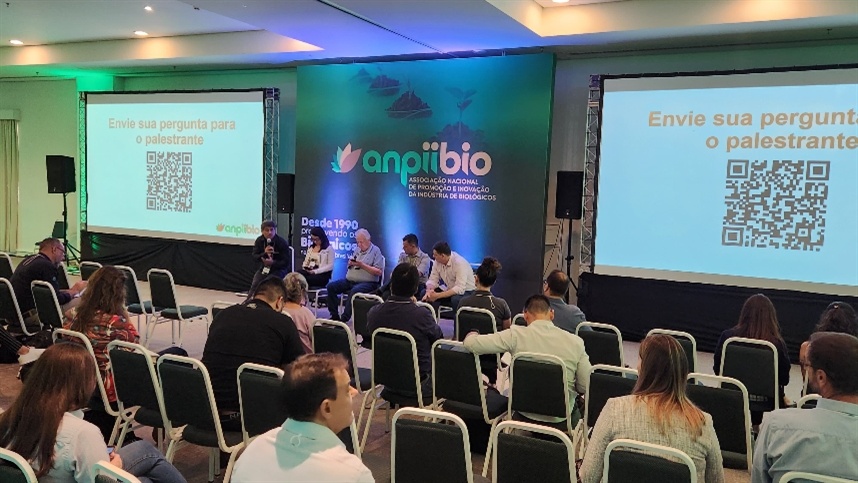The bioinput market in Brazil is booming and is expected to exceed R$9 billion by the end of the decade. According to data presented at the 2nd ANPII Bio Market Intelligence Workshop, held in Campinas (SP), the sector generated R$5.7 billion in the last harvest, with a treated area that reached 156 million hectares.
Brazil consolidates itself as a global leader
Brazil already holds 11.3% of the global bioinput market and stands out especially in the bioinoculants and biodefensives segments, where the national share is 12.6%, with a projection of reaching 16.4% by 2030. This growth reflects the strong adoption of biological technologies by producers, driven by benefits such as greater efficiency in agricultural management and sustainability.
Despite the progress, the sector faced challenges in 2024, such as high carryover stocks, reduced purchases and credit difficulties, which limited the profitability of grain producers. Even so, the sales volume of bioinputs grew 12.4% compared to 2023, while the treated area increased 13.4%.
Technological innovations drive adoption
The future of bioinputs is directly linked to innovation. Among the main technologies that should gain strength in the coming years are nutrient solubilizing inoculants and bioinsecticides. The expectation of the companies associated with ANPII Bio is that, in 2025, sales of inoculants will grow 12.4%, while biodefensives will have an even more significant increase of 20.4%.
“The sector remains optimistic, even in the face of recent economic challenges. The adoption of bioinputs continues to grow and new technologies should further expand market share”, explains Larissa Simon, Operations Director at ANPII Bio.
Bioinputs Law: New impetus for the sector
Another factor that promises to accelerate market expansion is the Bioinputs Law, enacted at the end of 2024. The new regulatory framework creates a more favorable environment for the production, commercialization and use of these products, reducing bureaucracy and encouraging investment in innovation.
ANPII Bio advocates that the regulation of the law allow the registration of multifunctional products, that is, bioinputs that perform more than one function in crops, making agricultural management more efficient. In addition, the entity reinforces the need for financing lines with reduced interest rates for producers who adopt these technologies.
Strategic market for agribusiness
With the growing demand for sustainable solutions, bioinputs are consolidating themselves as an essential alternative for reducing the use of chemical pesticides and improving agricultural productivity. The ANPII Bio event brought together around 120 participants, including CEOs and directors from over 30 companies in the sector, reinforcing the importance of the segment for the future of agribusiness.
“The workshop has become a strategic space for companies to anticipate market trends and challenges. Sharing information and specialized analyses strengthens the sector’s competitiveness,” highlights Larissa Simon.
With an average annual growth of 14%, Brazil is establishing itself as a global leader in the use of bioinputs, expanding its relevance in the search for more efficient and sustainable agriculture.

